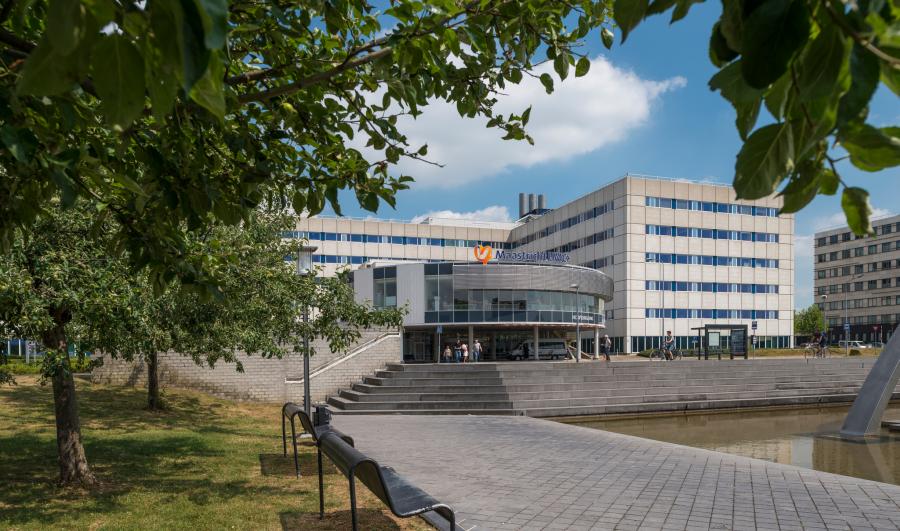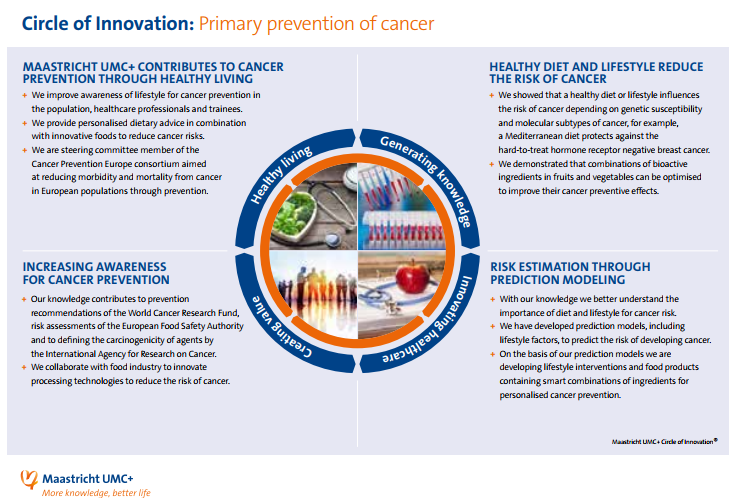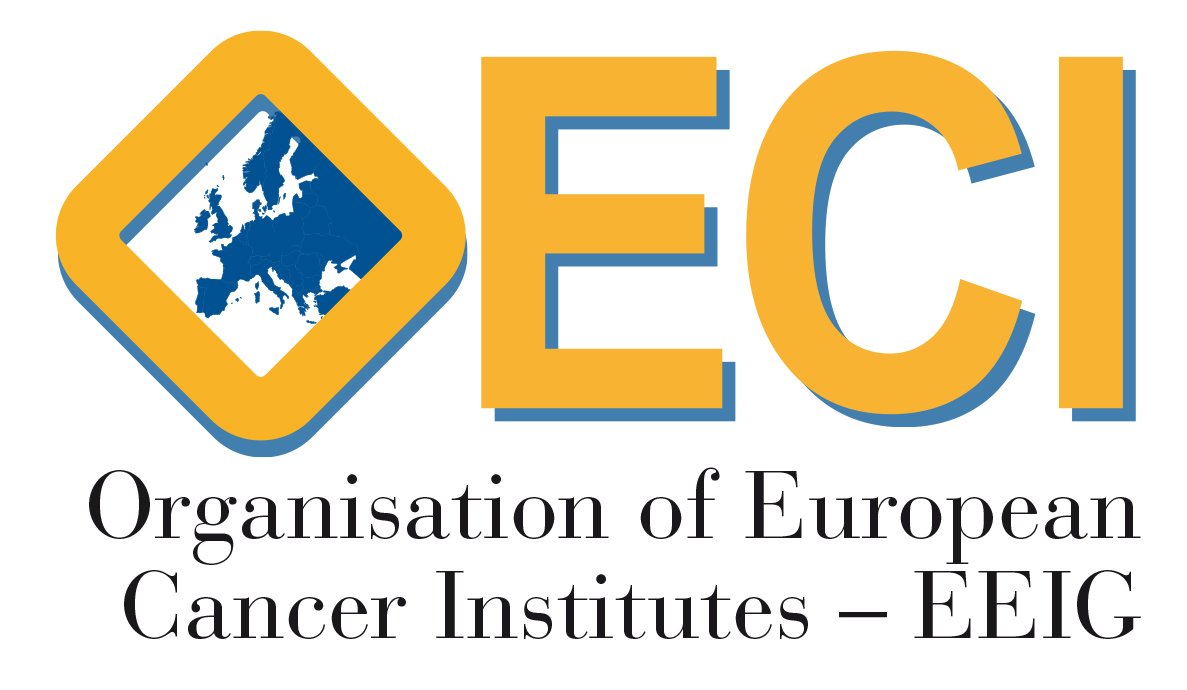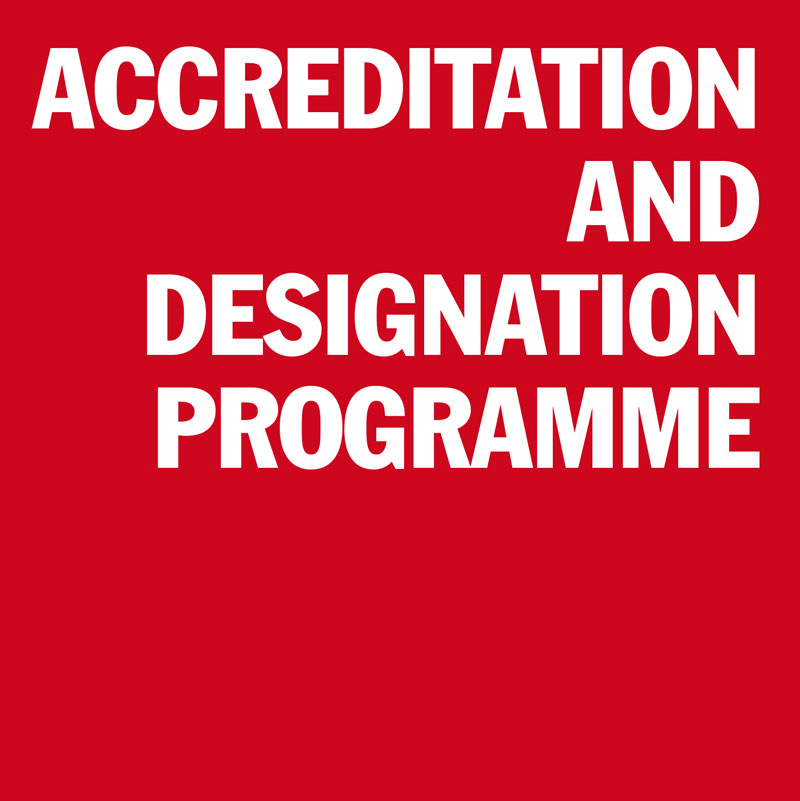Excellent Practices
Formation of the Comprehensive Cancer Centre structure and ‘Circle of Innovation®’
Practice Category: Structure
Centre: Maastricht University Medical Centre

Bernd Kremer
bernd.kremer@mumc.nl

Challenge which the practice addresses
Prior to 2016, oncological care and oncological scientific research were not optimally integrated at Maastricht UMC+. Patient care took place in the Oncology Center of the hospital and research in took place in the School for Oncology and Developmental Biology of Maastricht University (GROW). Despite numerous and intensive collaborations, there was no explicitly shared vision and strategy and the connection between clinicians and (basic) scientists needed to be improved.
The Oncology Center and GROW decided to intensify their collaboration in 2016 in order to align goals, vision and strategy and to obtain the OECI accreditation and designation as a ‘Comprehensive Cancer Center’. Thus the aim was to inextricably link patient care, research and education with one common vision and strategy.
Solution
A first conference for clinicians, scientists and patients was organised in order to meeting each other and to identify common ground regarding what we stand for (mid-2016). At the same time, we introduced the ‘Looking at the other’s point of view’ program, in which doctors and researchers visited each other at their workplaces.
The circle of innovation® instrument developed by MUMC+ was used to make visible our translational work in the field of ‘survival with preservation of function’. With the aid of the circle of innovation, we show how we acquire new basic knowledge, how we translate this knowledge into the clinic (translation), how this knowledge is implemented in the clinic, and how this contributes to improving health in the region or to knowledge utilization.
Link to booklet circles of innovation
In a second conference, a number of excellent circle of innovations in the field of ‘survival with preservation of function’ were presented and discussed. The attendees were invited to develop circles of innovations for their own research lines.
A larger number of newly developed circles of innovations representative of our vision and strategy were presented in a third conference. In parallel, symposia for nurses and other employees were organised.
Simultaneously, preparations were started for the OECI accreditation.
Impact
Researchers and clinicians visiting each other’s workplace gained insight into the opportunities that scientific research is providing for patients and admiration for each other’s work.
Defining the scope of the collaboration strengthened the substantive connection between basic scientists and clinicians and the focus on translation of (basic) knowledge.
After the second conference there was cooperation from almost all tumour lines and after the third conference there was broad support for the vision.
During the preparation of the OECI accreditation, the quality of clinical care, research and education was further strengthened and as a result of the peer review, the substantive collaboration was perpetuated through an appropriate governance and financing structure. Further, the shared vision has been made more explicit and the collaboration with other partners in the field of oncology in Maastricht has been strengthened.
Critical success factors
- Critical success factors were emotional connection in addition to the already existing substantive connection and the use of the circle of innovation® to promote and make visible the translation of basic knowledge to implementation in the clinic and to facilitate the conversation between scientists and clinicians.
- The exemplary role of a number of figureheads and the invitation to follow them also played an important role in getting the other colleagues on board.
- Finally, sharing success (almost all tumour lines have been able to show that they match the vision and strategy of the Maastricht CCC), and also the process of the OECI accreditation, were responsible for the broad dissemination of our vision.
Next steps
The next step is to make even better use of the individual strengths of all partners within Maastricht UMC+ in the field of health maintenance and promotion (especially other graduate schools) to enhance the objectives of the Maastricht Comprehensive Cancer Center. The results achieved will also have to be consolidated, and the focus on ‘survival with preservation of function’, translation of scientific knowledge and prevention, will be further strengthened.


